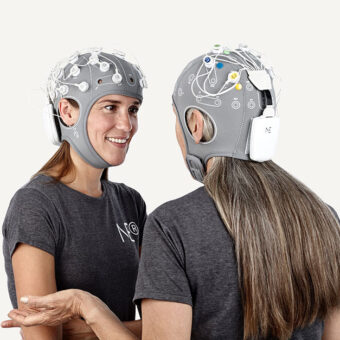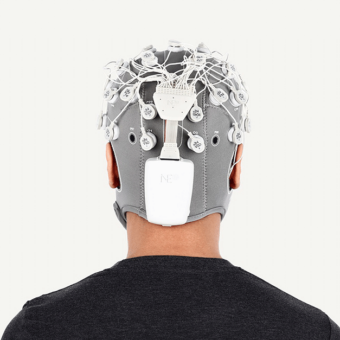The development of therapeutic agents for central nervous system (CNS) applications has long been a formidable challenge. It is not only costly but also fraught with a high rate of failure, even when the need for novel agents to combat CNS diseases is growing. Fortunately, a promising trend in drug development is emerging: biomarker-informed therapeutic development. In this context, the utilization of neurophysiological biomarkers, particularly electroencephalographic (EEG) biomarkers, is proving to be a powerful strategy for bridging the gap between preclinical and clinical stages in translational neuroscience. This article explores the role of EEG biomarkers in screening new targets, confirming target engagement, and tracking functional outcomes, ultimately accelerating the pace of CNS therapeutic development.
The Urgent Need for CNS Therapeutic Advancements
Developing effective treatments for CNS disorders is a pressing global need. Conditions such as depression, Alzheimer’s disease, and epilepsy impact millions of lives, yet the drug development process is fraught with obstacles. High costs, lengthy timelines, and a high rate of clinical trial failures have hindered progress. However, there is hope on the horizon in the form of biomarker-informed therapeutic development.
The Promise of EEG Biomarkers in CNS Drug Discovery
Utilizing EEG biomarkers represents a breakthrough in CNS drug discovery. These biomarkers enable researchers to:
- Screen New Targets: EEG biomarkers can be used to screen potential drug targets in model systems. By assessing their effects on brain activity, researchers can identify promising candidates early in the drug discovery process.
- Confirm Target Engagement: Once potential targets are identified, EEG biomarkers can confirm their engagement in early-phase clinical trials. This objective measurement provides critical data on the efficacy of experimental drugs.
- Track Functional Outcomes: EEG biomarkers also serve as valuable tools for tracking functional outcomes. They allow researchers to assess how drugs affect brain function and monitor patients’ responses, offering insights into treatment efficacy.
The Power of Translational EEG Biomarkers
Translational EEG biomarkers bridge the gap between clinical diagnosis and drug discovery. By applying advanced analysis to EEG data, these biomarkers offer objective insights into brain activity and drug effects. This objectivity enables researchers to track changes in neural circuits and detect early responses to experimental drugs, ultimately streamlining drug development and reducing costs.
Applications of Translational EEG Biomarkers in CNS Drug Discovery
- Neuropsychiatric Disorders: Conditions like depression, anxiety, and schizophrenia are notoriously challenging to treat. Electroencephalographic biomarkers objectively evaluate the effects of drug candidates on mood and cognition, potentially leading to more effective treatments.
- Epilepsy: EEG has long been essential for diagnosing and managing epilepsy. Translational EEG biomarkers enhance our understanding of seizure dynamics and support the development of targeted therapies.
- Neurodegenerative Diseases: Alzheimer’s and Parkinson’s diseases involve progressive brain dysfunction. These biomarkers can aid in early cognitive change detection and assess experimental drugs’ impact on disease progression.
- Pediatric Neurology: Children with neurodevelopmental disorders require specialized care. EEG biomarkers offer a non-invasive method to monitor brain function and assess treatment effectiveness.
The Acceleration of CNS Therapeutic Development
The integration of electroencephalographic biomarkers into the drug development pipeline has the potential to significantly accelerate CNS therapeutic development. By providing objective measurements of brain activity, these biomarkers help researchers make informed decisions at every stage of drug discovery. This not only reduces costs but also increases the likelihood of success in clinical trials.
In conclusion, EEG biomarkers are revolutionizing the field of CNS drug discovery. In an era where the need for novel therapeutic agents is greater than ever, these neurophysiological biomarkers offer hope. They enable the screening of new targets, confirm target engagement, and track functional outcomes, all while accelerating the pace of drug development. As technology continues to advance and our understanding of the CNS deepens, EEG biomarkers will play a pivotal role in bringing new treatments to those in need.
Stay at the forefront of innovation in CNS therapeutics, and explore our EEG solutions.
References
- Luck, S. J. (2014). An Introduction to the Event-Related Potential Technique. MIT Press.
- Niedermeyer, E., & da Silva, F. L. (2017). Electroencephalography: Basic Principles, Clinical Applications, and Related Fields. Oxford University Press
- Leuchter, A. F., et al. (2010). Biomarkers to Predict Antidepressant Response. Curr Psychiatry Rep.
- Kaddurah-Daouk, R., & Krishnan, K. R. (2009). Metabolomics: A Global Biochemical Approach to the Study of Central Nervous System Diseases. Neuropsychopharmacology.



